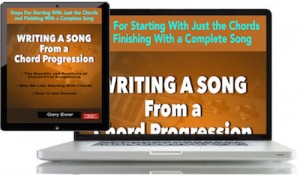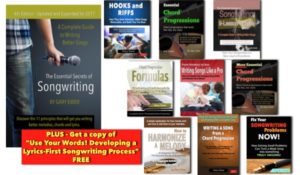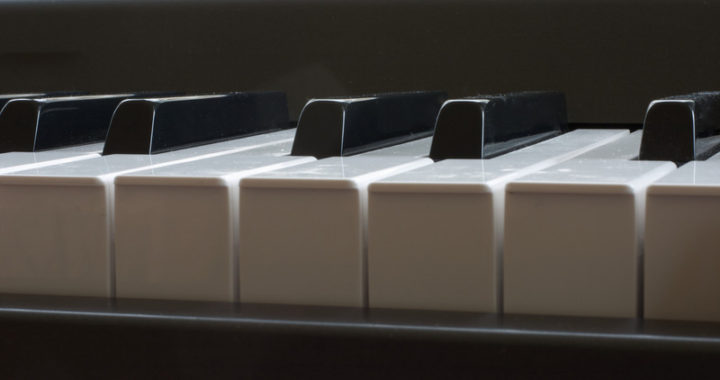However you start the songwriting process, you’re likely starting with the aspect of music with which you feel most comfortable. Start with lyrics? You probably find words easy to combine and finesse. Start with chords? You likely feel most comfortable setting the mood and colour of the music.
If you’re a chords-first songwriter, you’re probably improvising your progressions as a starting point. Whether you’ve got a good foundation in chord theory or not, you’re probably playing few chords, making changes until you’ve got something that you like, something good.
 Like starting the songwriting process by working out the chords first? There are benefits and dangers. Read “Writing a Song From a Chord Progression” to get this process working properly for you.
Like starting the songwriting process by working out the chords first? There are benefits and dangers. Read “Writing a Song From a Chord Progression” to get this process working properly for you.
The question is: How do you know when you’ve got “something good” when it comes to chords? Good lyrics can be hard to write, but you know when you’ve got something good there. A good lyric will usually rise above the norm, and give the listener something powerful to ponder.
But with chords, the problem is this: most of the time, chord progressions that are predictable and — let’s face it — somewhat boring are going to work just fine with most songs.
And why is that? It’s because a chord progression’s most important duty is to serve as a piece of landscape upon which you build your song. In that regard, chords don’t necessarily need to be the kind that draw attention to themselves as being anything more than supportive.
Some of the best songs ever written use very standard progressions that have been used by other songs, hundreds or even thousands of times. The circle of 5ths progression (C-Am-Dm-G-C…) is just one example of the kind of progression we hear over and over again.
So that’s just one of the problems you face when writing songs using a chords-first songwriting process: the belief that those chords need to be unique and somehow powerful on their own. You are starting with chords, after all, so your tendency is to give those chords a lot of attention.
Moving On From Chords
I like the chords-first songwriting process, but I think, rather than spending a lot of time trying to get something innovative in your chords, it’s better to get something that works, regardless of how overused you might think it is, and then move on to other aspects of songs that are more attention-getting.
For me, I like getting to the melody as quickly in the process as I can. Once I have a well-shaped, interesting melody, I can always go back to the chords, and reshape or even re-create them, to get them supporting that melody in a more powerful way, if necessary.
As I often say, no one walks down the street humming chord progressions. They’ll hum melodies, they’ll sing lyrics, they’ll tap rhythms, but the chords will always play a supportive role.
I love complex chord progressions, mind you, because they stimulate my creative mind. But even complex chords serve in a supportive way.
So my advice for those of you who use chords-first songwriting methods is:
- Get something that works, and don’t worry about innovation at first.
- Move on right away to melody, and try to create a tune that has unique and ear-catching elements.
- Move back to chords to change things or add to what you did in the first step, always to support the melody you’re writing.
 Written by Gary Ewer. Follow Gary on Twitter
Written by Gary Ewer. Follow Gary on Twitter
“The Essential Secrets of Songwriting” 10-eBook bundle comes with a free copy of “Use Your Words! Developing a Lyrics-First Songwriting Process”, as well as the all-important Study Guide.










